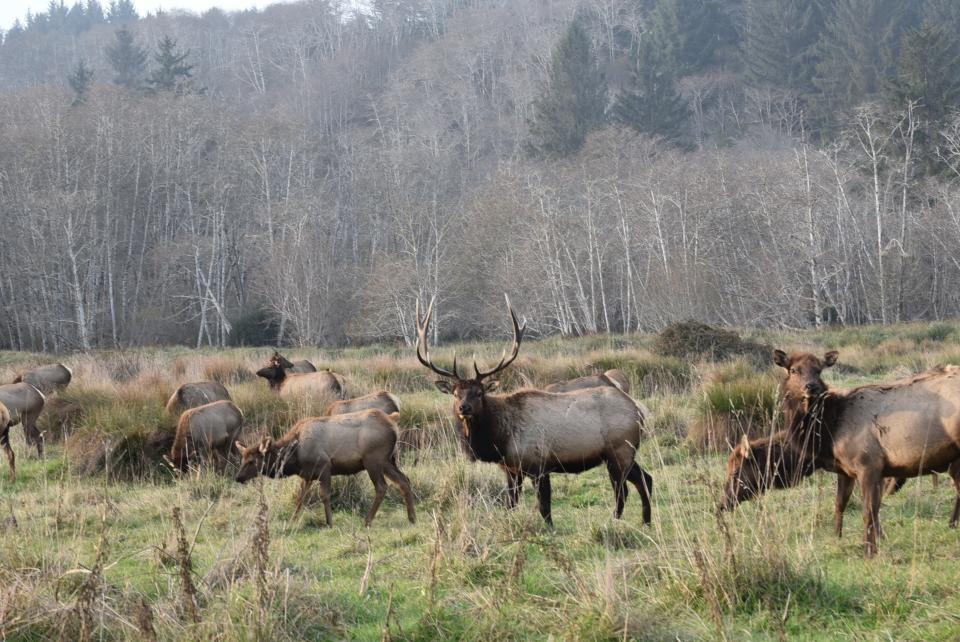Driftwood Outdoors: Recovering America’s Wildlife Act returns for another round

Recovering America’s Wildlife Act (RAWA) is bipartisan legislation that if passed, will dedicate $1.3 billion annually to state fish and wildlife agencies and an additional $97.5 million for tribal fish and wildlife management. The funds will be used to conserve fish and wildlife through science-based wildlife action plans.
During the last session of Congress, RAWA passed the House of Representatives, but failed to make it across the finish line in the Senate. Reports from polling and public opinion research indicate broad bipartisan political support for passage of this bill. U.S. Senators Martin Heinrich, D-N.M., carried the legislation in the past with now-retired Missouri Senator Roy Blunt. On this go around, Senator Thom Tillis, R-N.C., is sponsoring the legislation with Heinrich.
The Association of Fish and Wildlife Agencies (AFWA) serves as the collective voice of state, provincial and territorial fish and wildlife agencies. The organization issued a press release acknowledging the advancement of the act and their support for final passage.
“The Recovering America’s Wildlife Act is a transformational bill that will give state fish and wildlife agencies the sustainable resources needed and will empower local stakeholders to work together with states to implement the wildlife action plans they’ve had in place for years,” said Ron Regan, Executive Director of the Association of Fish & Wildlife Agencies. “We know what needs to be done on the ground for wildlife—and it takes time and dedicated funding to achieve it, that is why this bill is so critically needed.”
Funding for fish and wildlife conservation is truly a matter of life and death. Not necessarily so for us, at least not in the short term, but thousands of species, some you’ve likely never heard of, face dire circumstances. The prairie chickens and monarch butterflies are just two examples.
“The need for the Recovering America’s Wildlife Act is indisputable and the urgency never greater,” said Curt Melcher, Director of the Oregon Department of Fish and Wildlife and President of the Association of Fish & Wildlife Agencies. “This is common sense, collaborative conservation and it is widely supported by a growing and diverse national coalition. We applaud Senators Heinrich and Tillis for their leadership and perseverance and stand ready to assist them in passing this bill for our fish and wildlife and for future generations.”
Senator Martin Heinrich is an undisputed champion of wildlife conservation. I have actually eaten dinner at his home in Albuquerque where he made myself and Jesse Duebel, executive director of the New Mexico Wildlife Federation, a stew made with caribou meat from a hunt in Alaska. In Heinrich we have a true conservationist leading the way in Washington DC. He walks the walk.
“Over the past few years, the outdoors have proven to be a real uniting force in Congress. I’m proud of the momentum and widespread bipartisan support we built with Senator Blunt last Congress, and I look forward to doing the same with Senator Tillis as we work to move this bill across the finish line,” said Heinrich. “Without enough resources, state and Tribal wildlife agencies have been forced to pick and choose which species are worth saving. Instead of doing the proactive work that is necessary to maintain healthy wildlife populations on the front end, they have been forced into using reactive measures to rescue species after they are listed as threatened or endangered. We urgently need to change this paradigm and save thousands of species with a solution that matches the magnitude of the challenge. The Recovering America’s Wildlife Act offers us a constructive path forward. Passing RAWA into law will mean our grandchildren will be able to experience the same rich and abundant American wildlife—from bumblebees to bison—that we have been so lucky to grow up with.”
With Senator Blunt’s retirement, we lost a strong advocate for wildlife. His friendship with Bass Pro Shops founder, Johnny Morris, helped drive legislative action. But thankfully, we have the next man up in Senator Tillis who represents North Carolina, another state rich in outdoor heritage.
“Congress has a long history of being champions of conservation efforts in the U.S. to protect our unmatched landscape and wildlife population. Today, we are facing another crisis with too many fish and wildlife being placed on the endangered species list, negatively impacting businesses, farmers and landowners,” Senator Tillis said. “This situation must be avoided at all costs, and RAWA gives state and tribal wildlife commissions the tools needed to perform proactive, on-the-ground conservation to prevent threatened species from becoming endangered. This is the first step in a long road to build consensus, and I look forward to partnering with Senator Heinrich and my colleagues in Congress to work on this legislation so we can avoid those situations and keep more fish and wildlife off the endangered species list, saving tens of millions of dollars in compliance costs for Americans, and protect our country’s rich natural resources.”
The significance of RAWA is monumental. Without a serious influx of funding for critical fish and wildlife work, we will continue to lose species to extinction. If you care about fish and wildlife, and the overall health of our natural environment, take a moment to contact the offices of your congressmen and senators and ask them to support RAWA.
See you down the trail…
For more Driftwood Outdoors, check out the podcast on www.driftwoodoutdoors.com or anywhere podcasts are streamed.
This article originally appeared on Columbia Daily Tribune: Driftwood Outdoors: Recovering America’s Wildlife Act returns for another round

